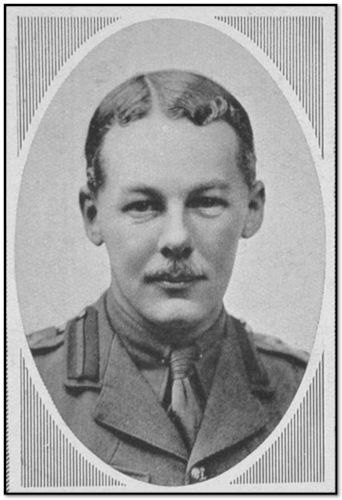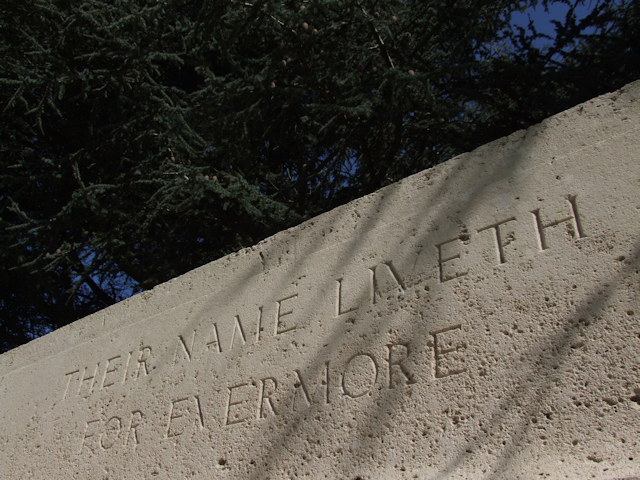Name
Meredith Magniac (DSO)
27th June 1880
Conflict
First World War
Date of Death / Age
25/04/1917
36
Rank, Service Number & Service Details
Lieutenant Colonel
Lancashire Fusiliers
1st Bn.
Awards: Service Medals/Honour Awards
1914 /15 Star, British War and Victory medals
Distinguished Service Order
Cemetery/Memorial: Name/Reference/Country
BEAURAINS ROAD CEMETERY, BEAURAINS
B. 4.
France
Headstone Inscription
Not Researched
UK & Other Memorials
Not on the Hitchin Memorials, Farnborough War Memorial, Farnborough, Hampshire
Pre War
Meredith was born in Hitchin on 27th June 1880, the son of Major General Francis Magniac, former commander of the Madras Light Cavalry and his wife Edith.
In 1881 the family were living at Walsworth, Hitchin. Present were both parents: Francis L. (57) and Edith D. (26). Francis was a Major General - retired. Their children were: Ethell Mary (11), Geradine D. (10), Maud N. (8), Charles L. (7), Eva Mary (7), Francis A. (5), Clara C. (3), Edith M. (1) and Meredith at nine months. Also present were a governess, nurse and four domestic servants.
By 1891 Meredith’s father had died, some of the family were lodging in Emmanuel Road, Portsea, Hampshire. Present were his mother Edith – living on own means, Children present were Geraldine, Francis, Meredith, now 10 and Erskine (8). A lady’s maid and a housemaid were also present.
Meredith was educated at Clifton College and later attended Eton where he excelled at cricket - later played for his regiment too, all the time destined to follow in his father’s military footsteps. Meredith was gazetted into the Lancashire Fusiliers on 2nd August 1899. By 1901 Meredith was a Lieutenant in Chatham Barracks, Chatham and in 1911 In the 1911 census, recorded on 3 April 19133, Meredith was a Captain in the 1st Battalion, Lancashire Fusiliers.
He held various posts including that of Instructor of Musketry. Meredith was promoted to Captain in 1904 and subsequently passed into the Staff College at Quetta which he graduated in 1912.
He was married to Winifred Ethel Sayres, the daughter of W Borrett Sayres. They married in St Philip's Church, Kensington: Earls Court Road, Kensington and Chelsea.
Soon after the outbreak of war, he relinquished a Staff appointment as Brigade Major in Ireland, and went to Gallipoli as a Captain on the Staff of General Sir Julian Byng.
Wartime Service
Magniac first found fame with the 1st Battalion Lancashire Fusiliers in April 1915 when his Battalion was part of the leading wave of the 29th Division’s assault on the Gallipoli Peninsular. Magniac, affectionately known as ‘The Maniac’, was in fact one of the individuals put forward for the rather unusual ‘ballot’ for the famous ‘six before breakfast’ episode. This was the award six Victoria Crosses to members of the Battalion who had performed particularly well during the landings. Whilst Magniac, then a Captain, was not one of the six drawn, his reputation as a fearless leader and a conscientious and brave officer was cemented in Gallipoli.
Magniac was involved in both evacuations at the end of the Gallipoli Campaign, being Mentioned in Disptaches three times for his bravery and leadership during the most trying of times. In March 1916, Magniac arrived in France in command of his Battalion to join the war on the Western Front. In a rare spell of home leave in the Spring of 1916 he married Winifred Sayers, the daughter of a well-known cricketer.
On 1st July 1916, Magniac, who had already seen considerable fighting, and experienced considerable loss, was to preside over one of the most infamous actions on the opening day of the Battle of the Somme. On that day, several hundred men of 1st Lancashire Fusiliers were to attack from a sunken lane in no-man’s-land toward German positions outside the village of Beaumont Hamel, with the remainder attacking from an area known as White City, several hundred yards to the rear. Also in the sunken lane that dawn was cinematographer Geoffey Malins, who recorded men of the Lancashire Fusiliers in the minutes before the attack, a piece of footage that is perhaps the single most iconic of the entire Great War. On the evening before the attack, Magniac and his men, along with machine gunners and trench mortar men, had occupied the sunken lane and considerably shortened the distance they were to cross at 7.30 the next morning. Unfortunately, one of the major mines that had been dug in advance of that attack, in this case under the Hawthorn Redoubt, was blown at 7.20am, a full ten minutes before the attack was to start. This had the undesirable effect of alerting every German within a large radius of the impending attack and consequently, when the Lancashire Fusiliers advanced, they did so into a hail of machine-gun and rifle fire from their front and flank. In just a few minutes, almost 90% of the Battalion had become casualties; killed wounded or prisoner. Magniac, who was reported to have acted incredibly courageously that morning, was somehow left unwounded and would continue to lead his Battalion through the remainder of the year. For his leadership on 1st July Lieutenant Colonel Magniac was awarded the Distinguished Service Order. He was also mentioned three times in Despatches for gallant and distinguished service in the field.
Meredith Magniac’s war came to an end in April 1917 when during the battle of Arras he was killed by shellfire outside the village of Monchy-Le-Preux.
After his death, a fellow Officer wrote:
“He was, of course, in the front line with his men. I do not think there was an officer in the Division who did not admire and respect the Colonel, and not an officer or man in the battalion who did not love him. He was the finest soldier I ever met, a strong man, a born leader, and a very gallant gentleman”. Another wrote "It was no wonder that officers and men alike felt that his name was a synonym for justice and straightness. As one dear Lancashire lad said 'He's a white man (an expression of the time, now outdated) and a gentlemen, every inch of him.' He understood the Lancashire temperament so utterly that he could always get the maximum work out of them without driving them, for every man knew that he would never ask impossibilities. though he expected always their best, and got it because he trusted for it, I remember gratefully his quiet, consistent example as a Christian gentlemen and Churchman, which means so much to younger offers and men." Another: wrote to his wife: "Although my first meeting with your husband took place in Sulva, on Chocolate Hill, I think I could count myself as one of his friends, and his loss was a very great grief to me, as well as a severe blow to the division, and especially to his battalion. He was avert gallant gentleman, and the way in which he carried out his duty was a lesson to all. That we who served with him all appreciated him and knew his worth may perhaps in the future some day afford you some consolation. My brother with whom your husband served for many months in Gallipoli, was much attached to him and will be very grieved to hear of his death. You will excuse my writing to you, but as Chief Staff Officer to the Division my work brought me frequently into contact with him, and I thought you would not mind my telling you how much we miss him."
Just three days after Meredith’s death, his younger brother Erskine Magniac, himself a Colonel in the Indian Army, was to fall in action, being killed by a sniper in Mesopotamia.
Acknowledgments
Derry Warners



